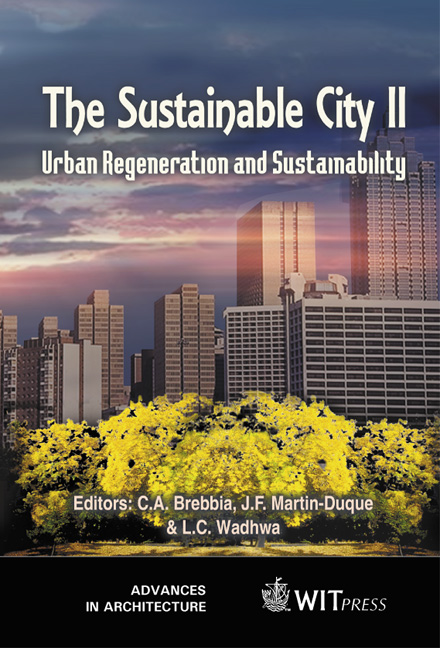Urban Sustainability In The Tradition Of Islam
Price
Free (open access)
Transaction
Volume
54
Pages
Published
2002
Size
650 kb
Paper DOI
10.2495/URS020681
Copyright
WIT Press
Author(s)
H Mortada
Abstract
Urban sustainablity in the tradition of Islam H. Mortada Dept of Architecture, King AbduI Aziz University, Jeddah, Saudi Arabia. Abstract The attention paid by the tradition of Islam to the natural and urban environments is reflected in certain principles that are clearly found in the basic sources of this tradition, the Qur’an and sunnah. Other principles have grown within the traditional built environment of early Muslims. This paper analyses the traditional Islamic ideals concerning the natural and urban environments. As far as the natural environment, preservation, while utilisation of natural resources, is the principle in which Islam has defined the relationship between man and nature. Islam has set up a responsibility for man towards nature. This responsibility evolves from the role of man as a user of natural resources and a preserver of the natural balance as well. In regard to the urban environment, Shariah, the traditional Islamic law, views that planning and regulating the built environment should support morals and improvement of society. As urban planning decisions determine the shape of social life in the built environment, urban zoning and land use regulations should focus on social integration and protection of people’s rights and needs. Islam views that the urban environment must reflect simple and moderate lifestyle of inhabitants. It signifies residents’ equal rights to clean water, air and light. Therefore, it prohibits any source or action that directly or indirectly affects these rights. 1 Introduction As a result of the oil crisis of the 1970s, which alarmed most decision makers in the West, a new movement emerged calling for alternative resources of energy and a lifestyle that does not depend on oil. This lifestyle has been symbolised as \“sustainable living.’’ Advocates of sustainablity claim that sustainable living satisfies our needs today, without diminishing the prospects of future generations to do the same. They ask for a balance in the consumption of resources so others can benefit from them in the future. To them, sustainable living also demands a reduction in the impact of transportation and industry on humans and the environment. They propagate the importance of using materials in continuous cycles and constantly reliable sources of energy as well as
Keywords





